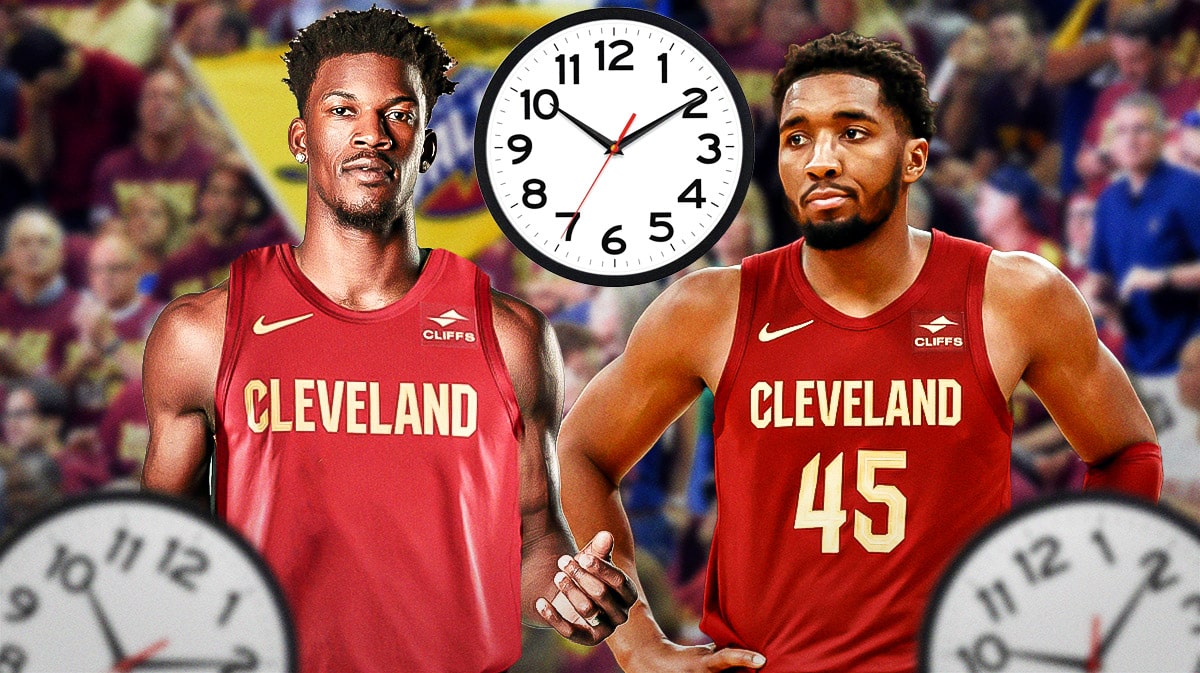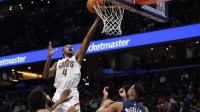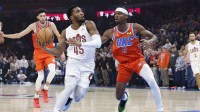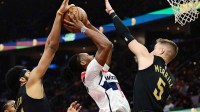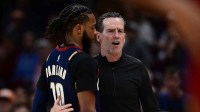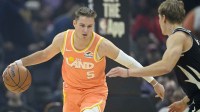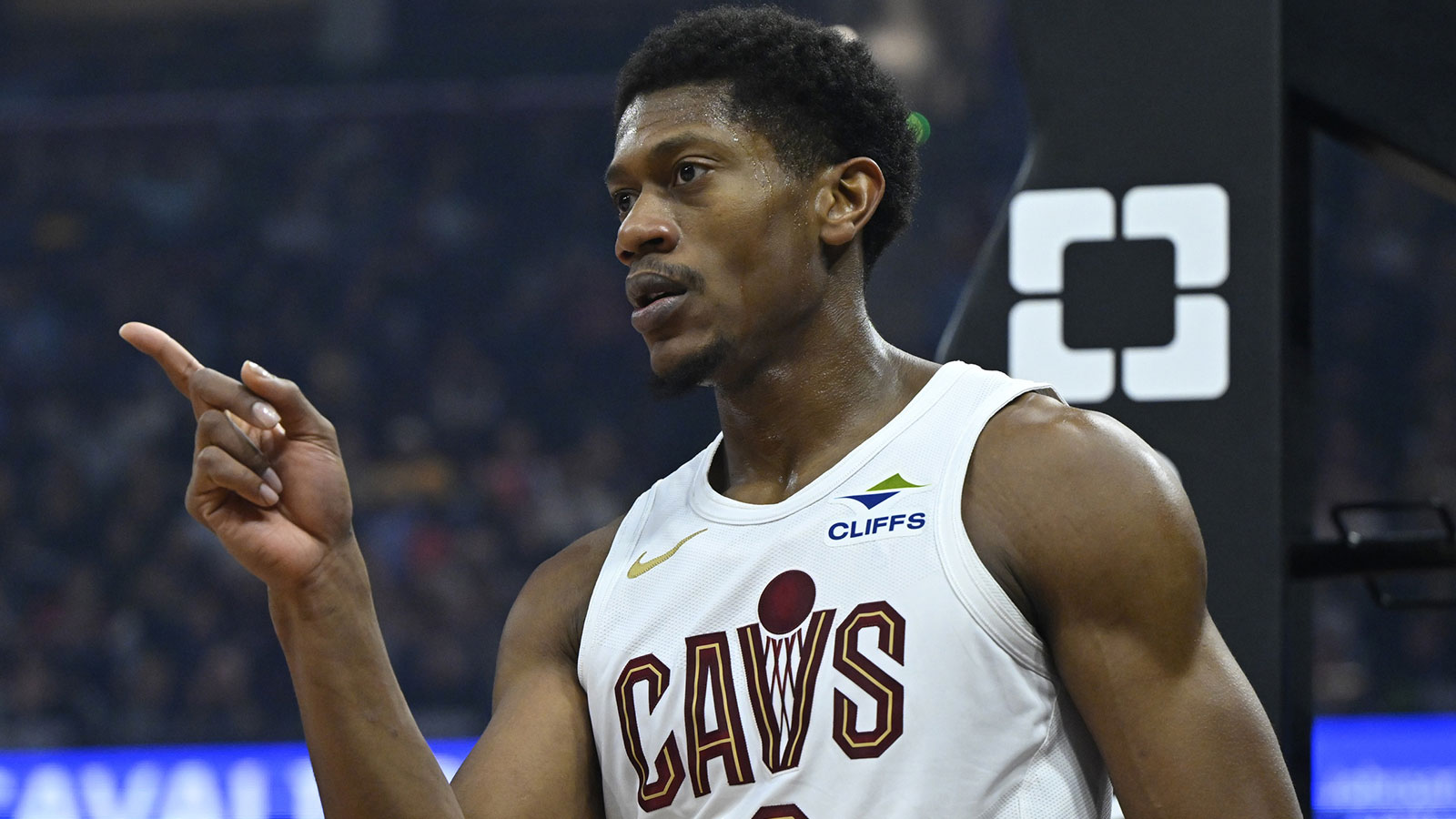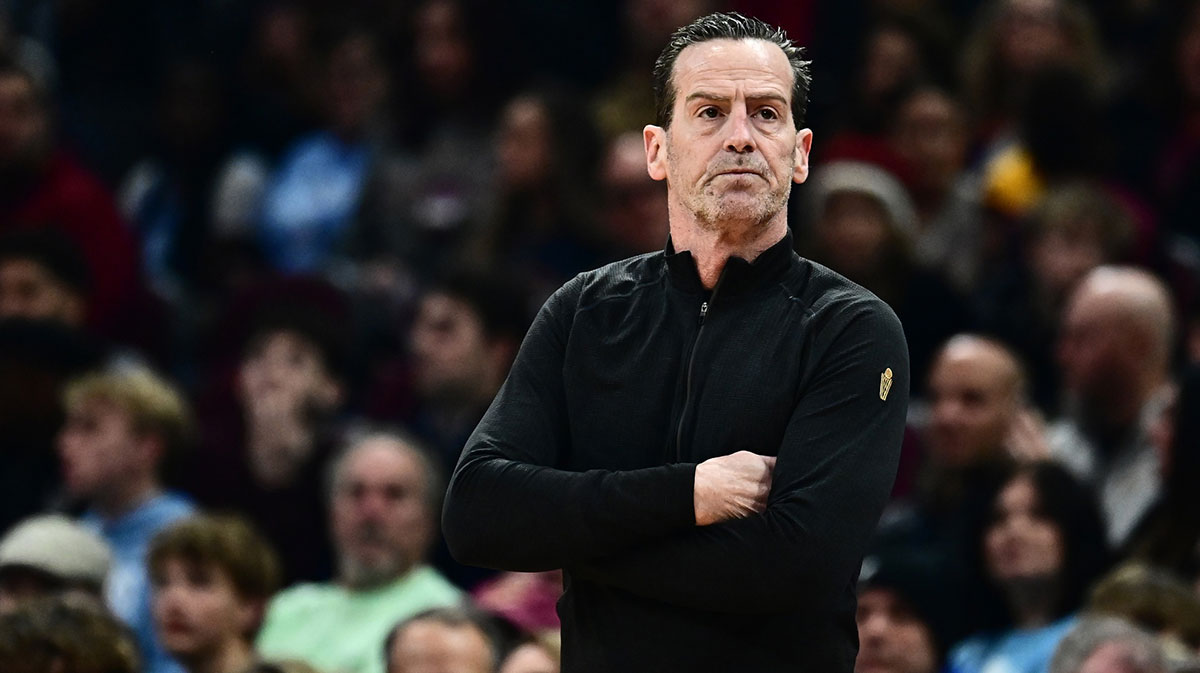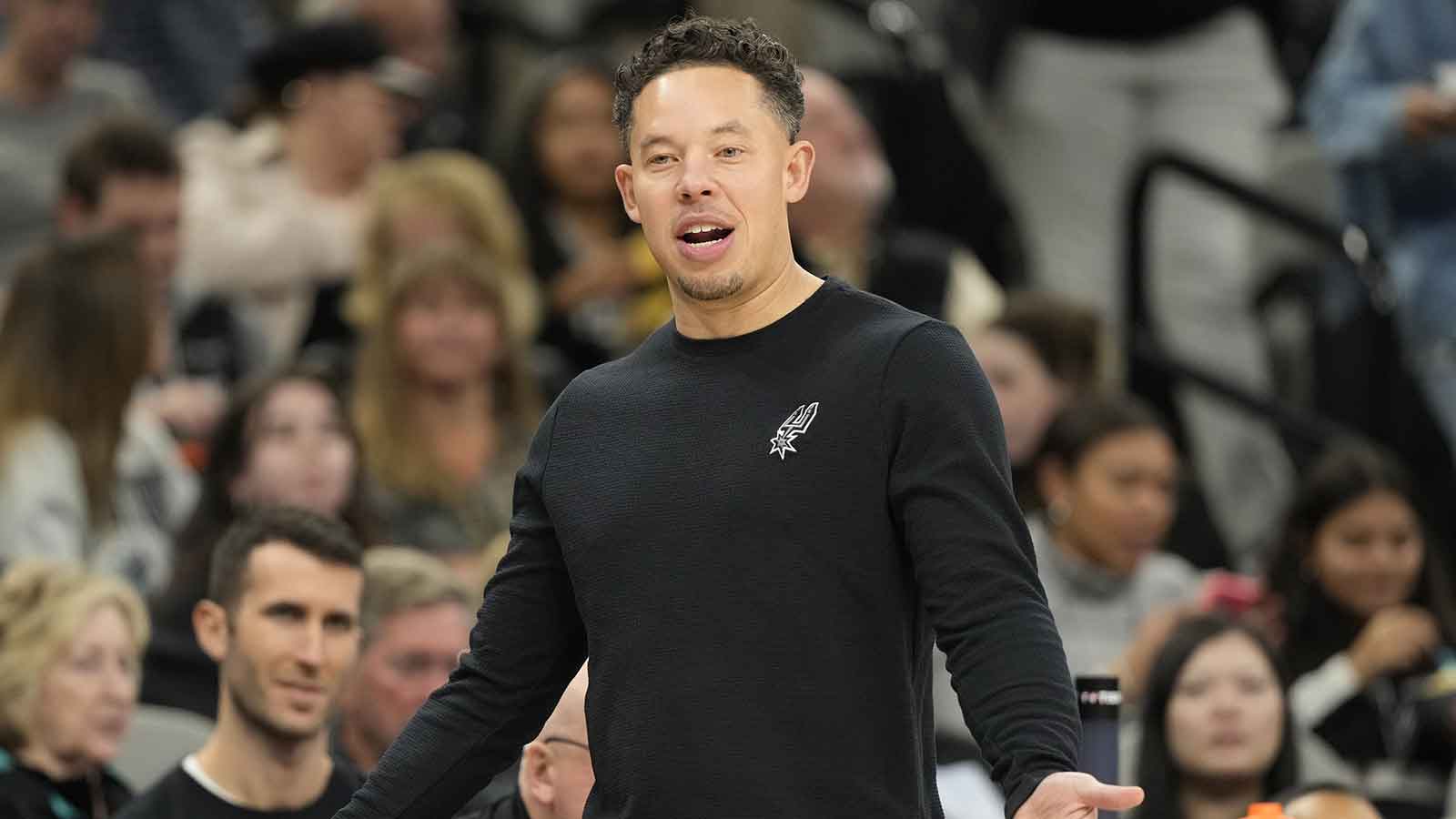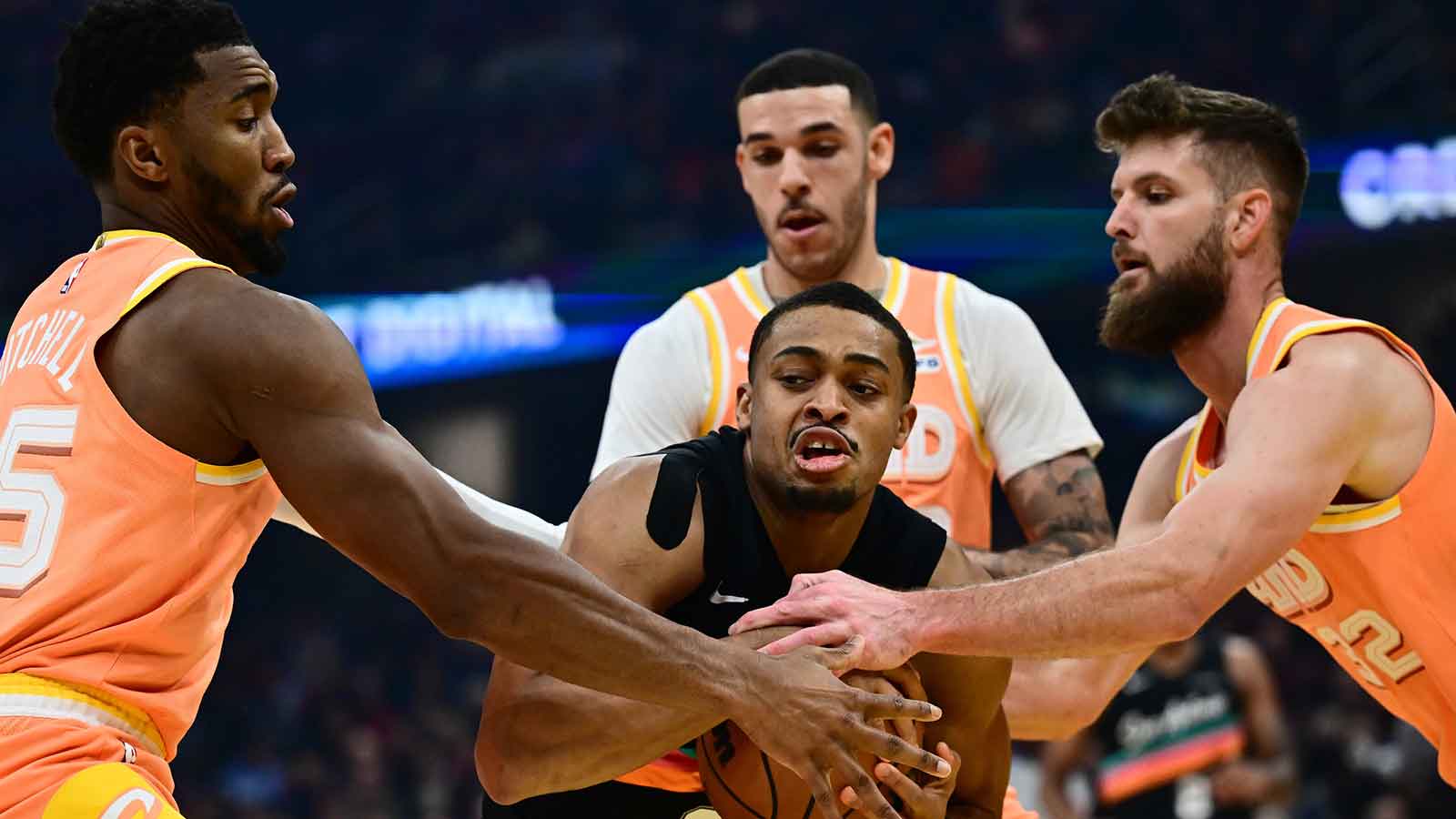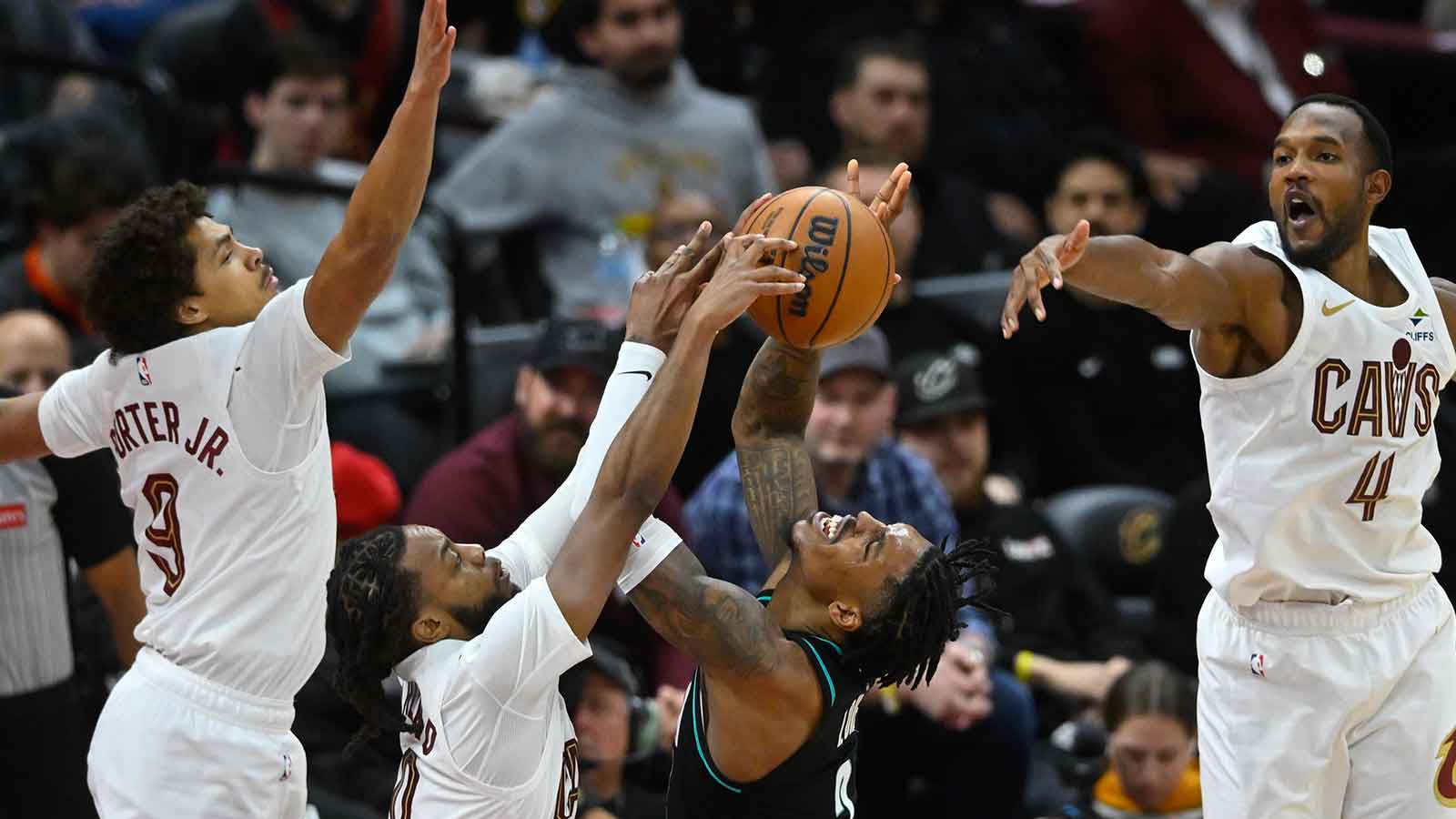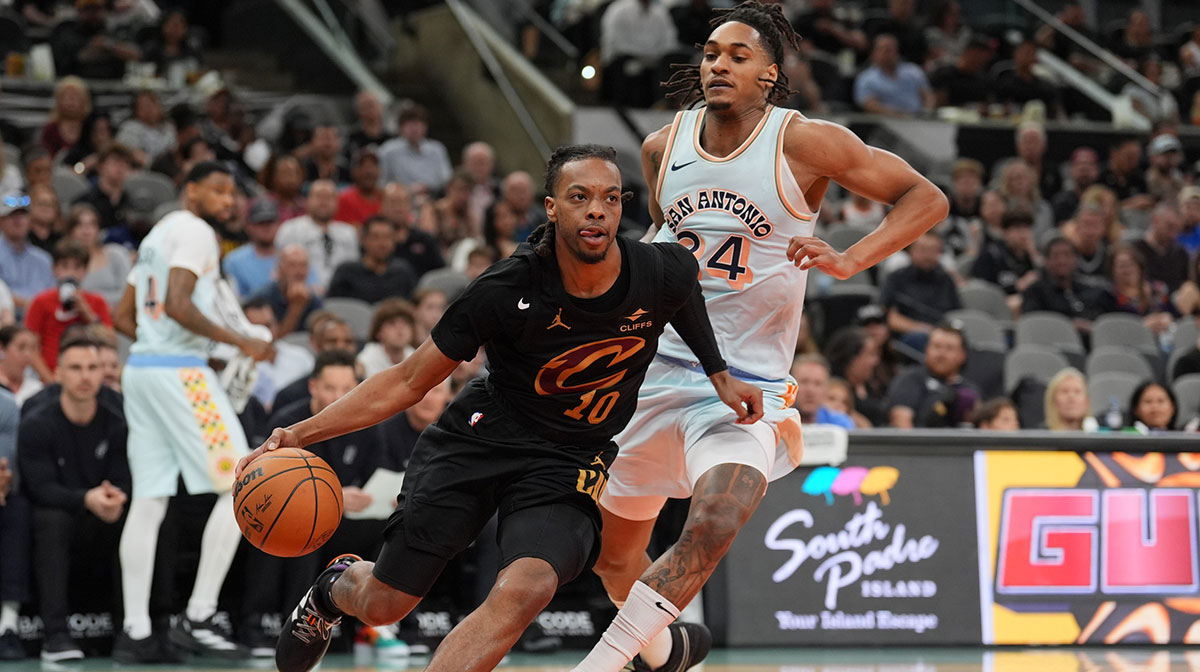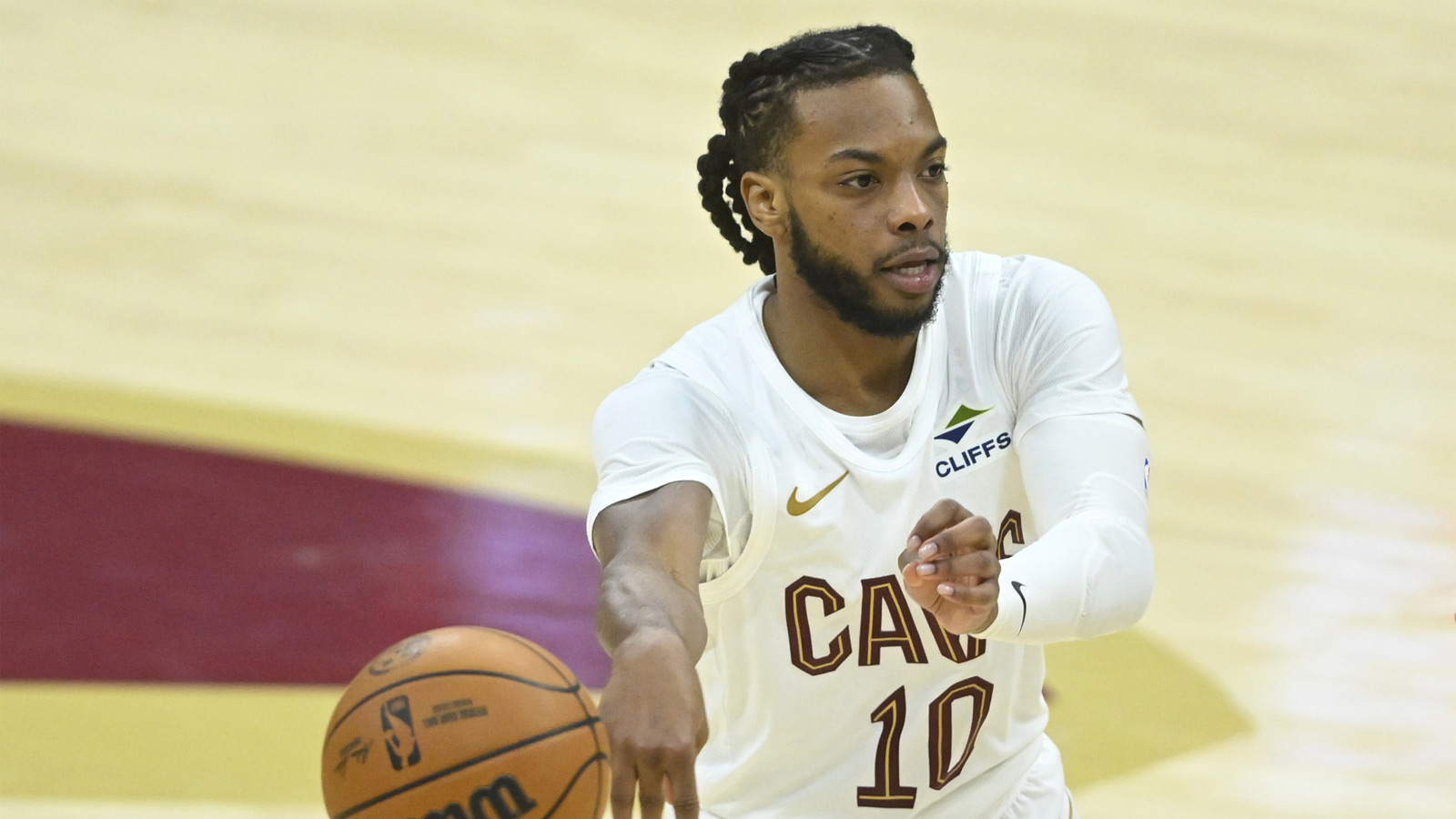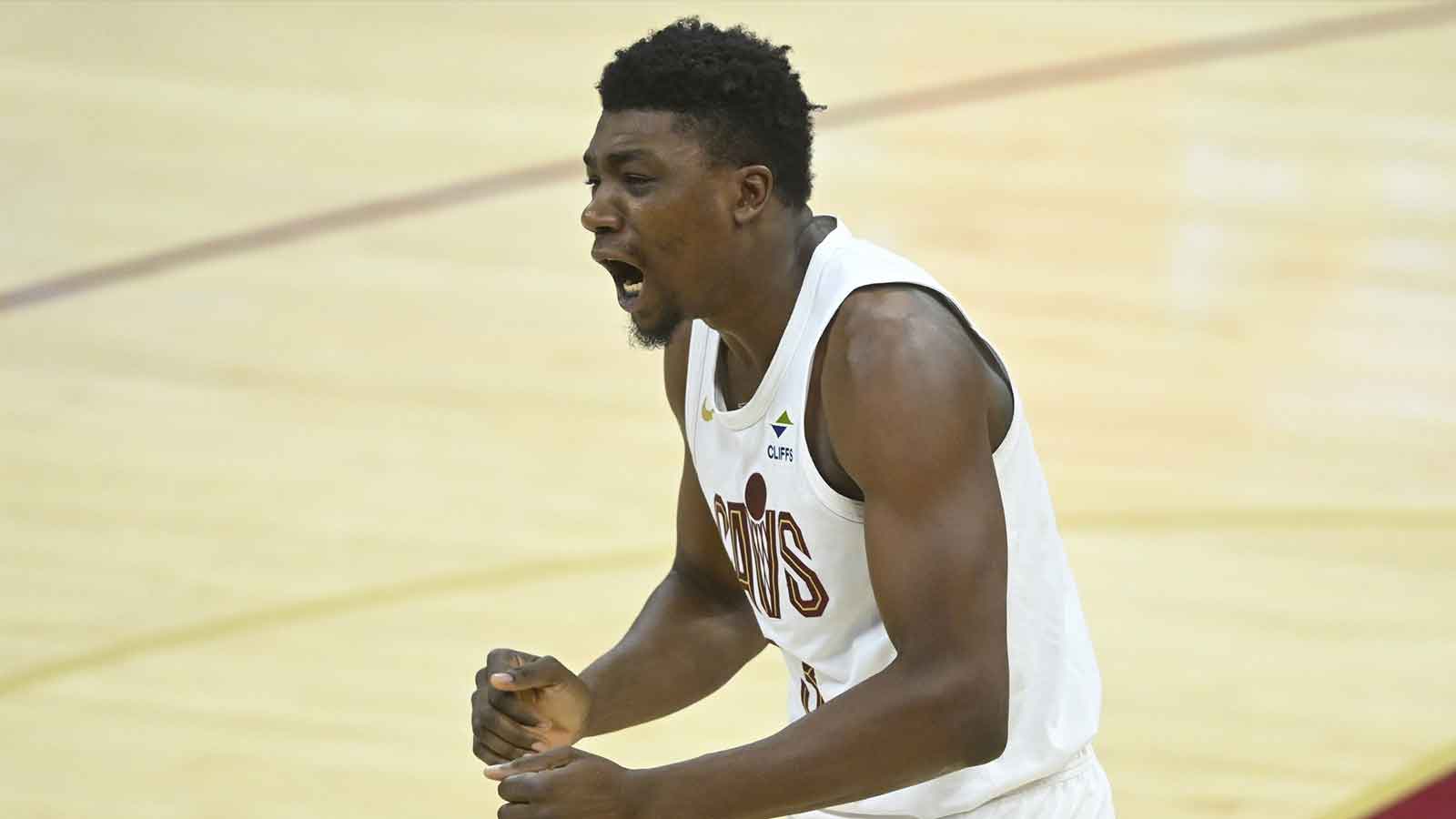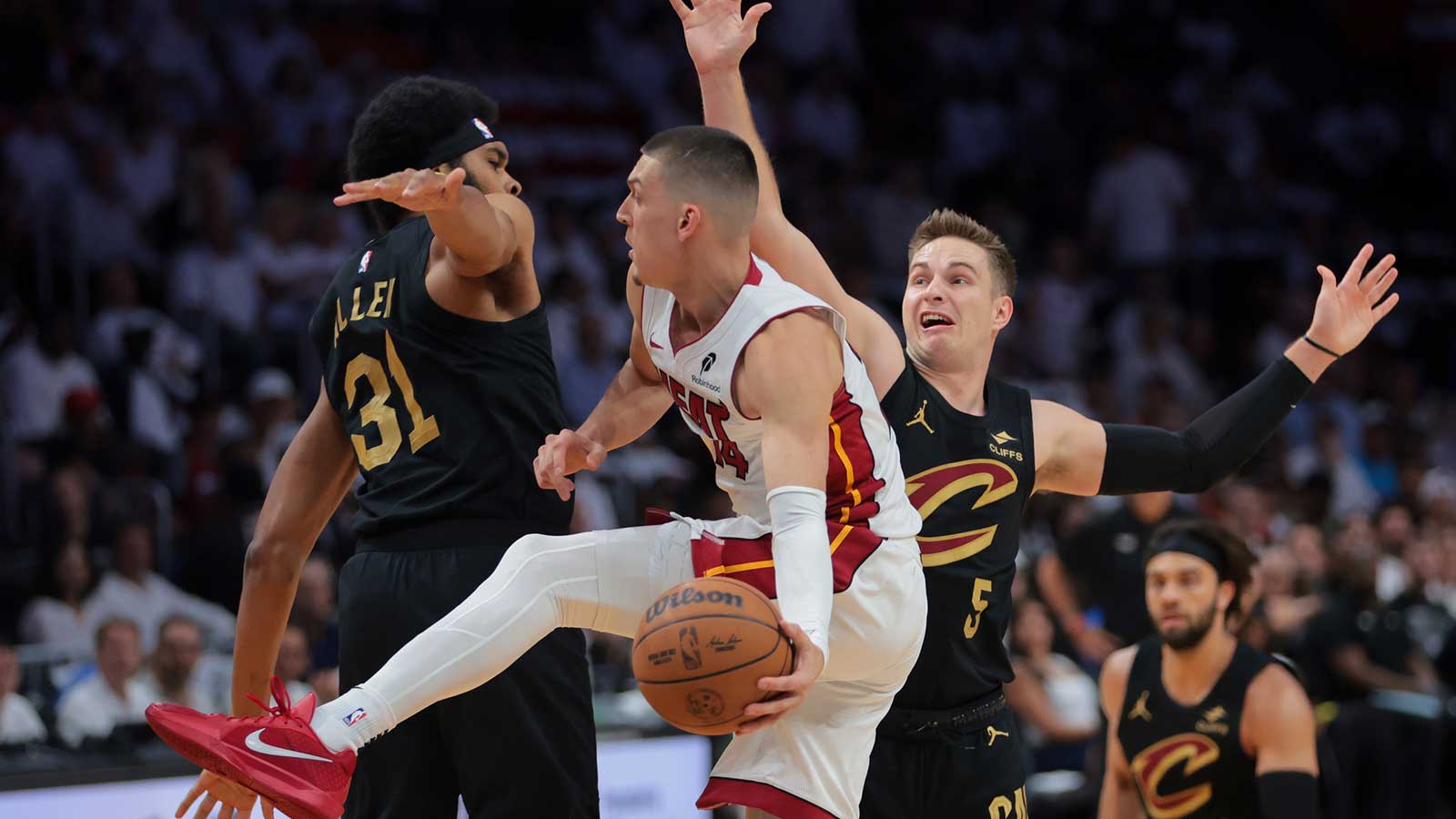The Cleveland Cavaliers have been searching for an answer at small forward since LeBron James left town for a second time in 2018, with no clear succession plan in sight. This season, Cleveland tried Isaac Okoro, Max Strus, Caris LeVert, Georges Niang, Dean Wade, Evan Mobley, Marcus Morris Sr. and others at the spot, with no one truly sticking.
Granted, injuries played a major part there, but in more than a half-decade, there still isn't any clear, permanent answer for the Cavs at small forward. Considering how limited asset-wise Cleveland is, many are wondering if the Cavs can make an upgrade at the position through a trade this summer instead. While there are many intriguing options, a name that has popped up among fans lately is Miami Heat star Jimmy Butler, who might be available if the opportunity allows it.
With a respected history of playoff excellence, Butler is reportedly seeking a $113 million extension with the Heat. But if Miami is hesitant to commit to the aging star, that's where the Cavs could swoop in. If Cleveland hopes to compete for a championship with Donovan Mitchell leading the way, they cannot sit idly by and hope that the perfect star lands in their lap.
But when it comes to Butler, trading for him would be a terrible idea and likely crater anything Cleveland has built up to this point, especially with time not on Butler's side.
Why Father Time is keeping Cavs from trading for Jimmy Butler
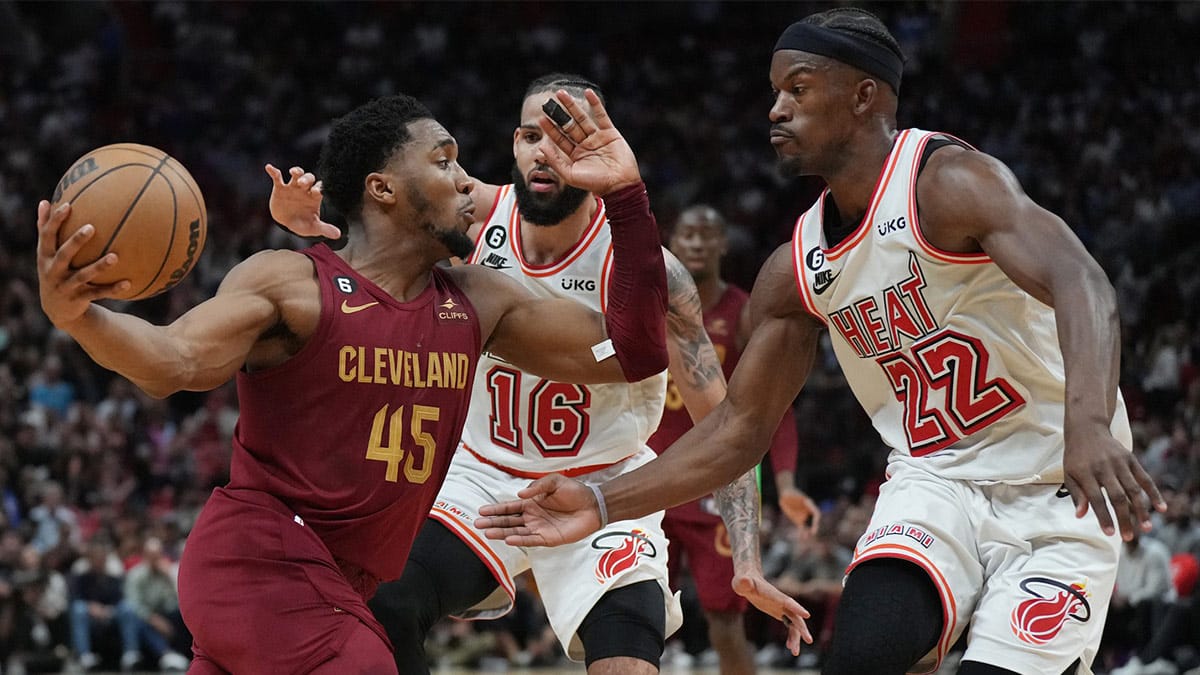
From 10,000 feet above it all, Butler, on paper, makes sense for the Cavs as a solution for a handful of seasons at small forward. But it's clear that if they were to trade for Butler, it would require them to commit to his financial desires. No front office will trade assets for a star just to lose them in free agency, a fireable offense.
So, a possible Butler trade means committing to a max extension for the 34-year-old star. Cleveland would have to be fully confident in its willingness to go all-in to win now and a belief this currently assembled team is mature enough to compete for a title.
Butler would be 35 at the start of next season, and a possible extension would last through 2026-27, where he'd be 37. After Butler, the second-oldest player on the Cavs is sharpshooting forward Georges Niang, who will be 31 at the start of next season. The only other Cleveland player in his 30s next season will be Caris LeVert, who turns 30 in August.
Everyone else on the Cavs will be under 30, and considering that Niang and LeVert are role players, it's easier to fit them into Cleveland's current timeline. But Butler isn't a role player—he's a star. If the Cavs were to acquire Butler and immediately sign him to an extension through the 2026-27 season, the team would undergo a massive shift.
Unfortunately, that shift could recreate a situation similar to what Butler is currently dealing with in Miami, where the Cavs are forced to continue tearing down what they've built to maximize the limited time around a duo of Butler and Mitchell. That's not even including the fact that Cleveland would likely have to give up both Jarrett Allen and Darius Garland to acquire Butler, further straining their options moving forward.
Again, on paper, bringing in Butler purely due to his position and skill fits the Cavs perfectly. Unfortunately, age, cost and everything in between muddies that vision and further drives home the point that Cleveland is better off looking elsewhere.

